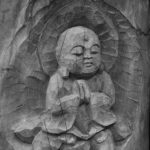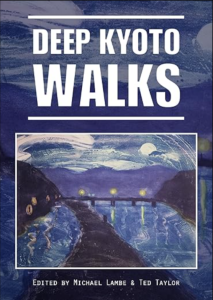More than just the Aoi Matsuri! If you can imagine the rugged geography of Japan without paved roads or mechanized transportation, you will appreciate the important role which horses played here until fairly recently. There are hundreds of place names in Japan that reflect a long and intimate relationship with the horse. Keage, near Nanzen-ji Temple, is one such … [Read more...] about Kyoto & Horses
Ian Ropke
Miyako in the Mist
A photograph and poem by Ian Ropke: Miyako in the Mist mist rising from my eyes and I know there's more as when I see mists twisting across the slopes way above Ginkakuji drifting in a haunted motion between the red pines and I imagine brontosaurus feeding calmly in the dawn mists beckoning from a mile away you capture me as easily as when I am having … [Read more...] about Miyako in the Mist
The Enchanted City
Ian Ropke writes: The idea of a city conjures up a thousand images. There are enormous cities of power and wealth. There are dying cities. There are living cities. And yet behind all these adjectives shimmers the idea of the city, the ideal city, the dream of humankind, the showcase for all our best achievements. The city can and should be a symbiotic balance between our … [Read more...] about The Enchanted City




